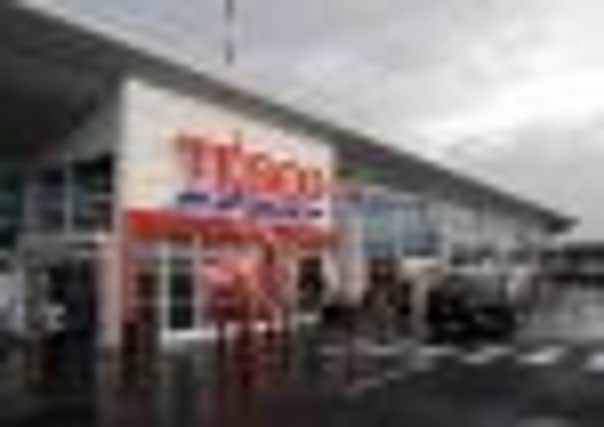Tesco to be hit by £36m health levy


Industry leaders have stepped up their attack on the tax, which will hit all large stores selling both alcohol and cigarettes from 1 April.
The Scottish Retail Consortium (SRC) branded it a “discriminatory tax regime” that will make Scotland “a less attractive place to do business”.
Advertisement
Hide AdAdvertisement
Hide AdThe SNP administration argues that the levy, which is designed to bring in almost £100m over three years, will have a minimal impact on the profits of the supermarket giants.
However, critics have warned that the supplement could act as a threat to further store openings and job creation north of the Border.
Figures compiled by property consultancy Ryden, and given to Scotland on Sunday, reveal that Tesco faces the biggest bill, at just over £36m over three years.
The firm’s estimates suggest that Asda will have to pay a supplement of £27m, while Morrisons and Sainsbury’s face levies of £19.7m and £12.8m respectively.
Waitrose, which has just four supermarkets that are affected by the changes, will need to stump up almost £823,000, and 11 Co-operatives are likely to be hit with a collective levy of £1.5m.
According to Ryden, a total of 238 properties fall under the tax. Only stores with a rateable value of more than £300,000 will have to pay, meaning smaller convenience stores are not affected.
Finance secretary John Swinney has said the money raised from the “public health supplement” will be put to use in preventative health measures, aimed at reducing drinking and smoking.
But the additional financial headache for retailers comes at a time of sluggish high-street sales and weak consumer confidence.
Advertisement
Hide AdAdvertisement
Hide AdEarlier this month it emerged that Scottish stores had suffered their biggest fall in sales for more than a decade in January, with non-food sales hardest hit. Recent research by PricewaterhouseCoopers suggested that six high-street shops closed every week in Scotland last year. Even Tesco, Britain’s biggest retailer, has not escaped unscathed. In January it stunned the City by issuing its first profit warning in living memory.
Tim Bunker, a business ratings expert at Ryden, said the big grocers may be concerned that the new levy marks the “thin end of the wedge”.
“It may be on a supplementary basis for a three-year period now, but what’s to stop something similar coming in at an even higher level in years to come?” he said.
“I think the head offices may be a bit divorced from what is happening up here. They may not know about it until the bill comes in.”
Ian Shearer, director of the SRC, said: “Supermarkets operate on narrow margins. Investment decisions are made on a store-by-store basis. Burdens on this scale can only undermine retailers’ ability to expand stores, open stores and create jobs.”
He said finance secretary John Swinney had “listened to our concerns” and reduced the overall bill that retailers will face prior to the government’s spending plan being approved by MSPs earlier this month.
But Shearer warned: “At a time when driving economic recovery should be the government’s absolute priority, this levy is still shortsighted and counterproductive.”